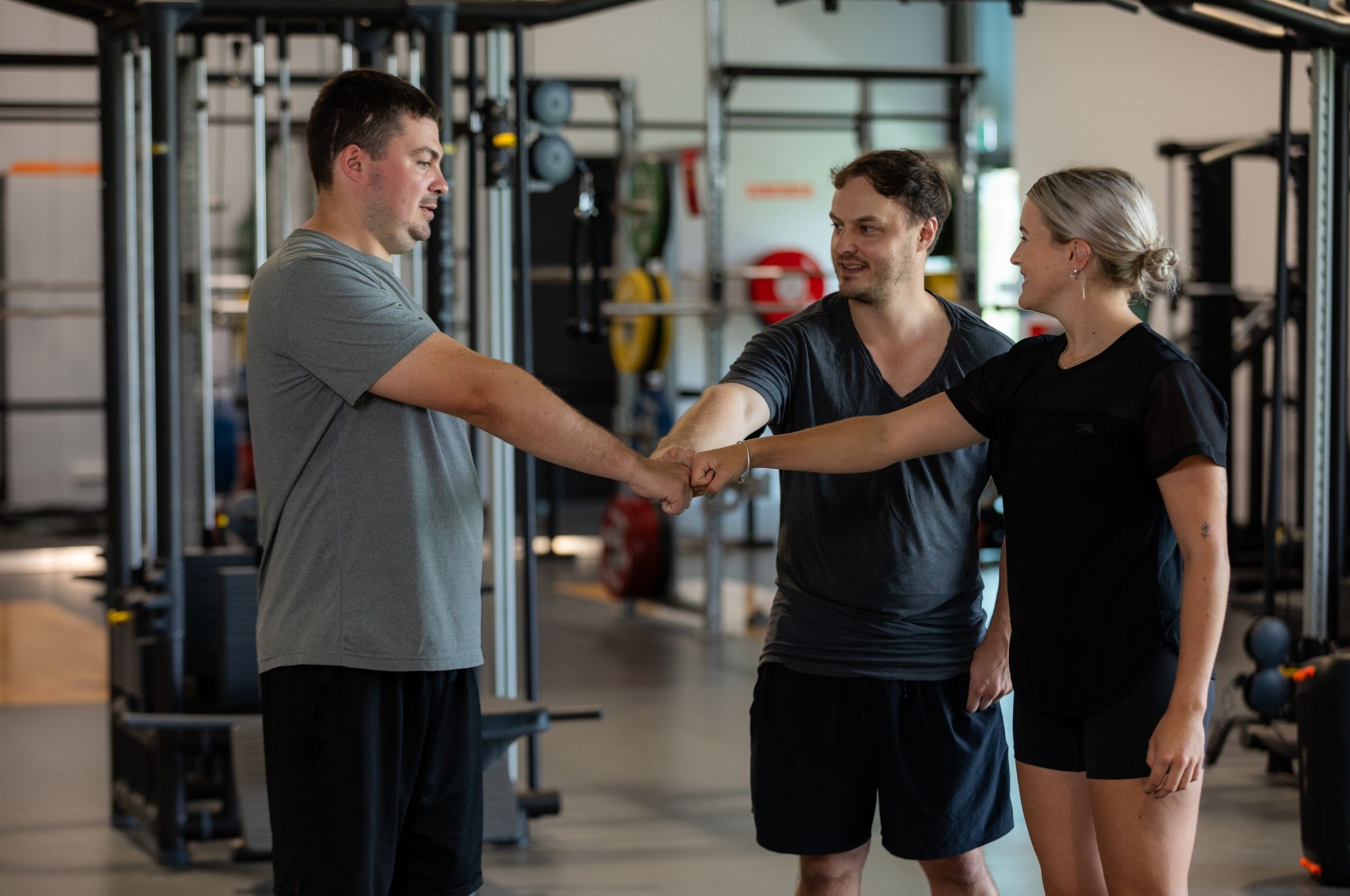Supports and practices for daily living

We develop and evaluate evidence-based practices and supports that enable Autistic people to live a life that is meaningful to them across the lifespan.
RESEARCH PROGRAM LEADER: Professor Nora Shields
Researchers: Josephine Barbaro, Kelsey Philpott-Robinson, Rachel Kennedy, Alesha Southby, Professor Alison Lane, Ifrah Abdullahi, Stacey Cleary, Georgia McKenzie, Katy Unwin
Our research has informed government policy on supporting Autistic people and their families with expert, evidence-based advocacy. While many of our studies focus on early supports for Autistic preschool children and building supports for their families. We are also exploring how best to support adults to improve community participation. Supports at any age provide benefits for Autistic people and their families.
IN THE MEDIA
- $2m grant for adults with intellectual disability
- GYM-SPARC launched
- Sensory-friendly learning: Strategies for inclusive classrooms
- Could supporting self-determination help Autistic adults improve their quality of life?
- Autistic community views on supports for infants
- Has the shift to individualised NDIS funding changed the profiles of children accessing supports?
- Neuroaffirming care values the strengths and differences of Autistic people, those with ADHD or other profiles. Here’s how
- How Kalon’s legacy is opening doors to support Autistic students to thrive
- Kurt Fearnley, Rebecca Falkingham, Bill Shorten have NDIS work cut out
Recent resource releases
Currently investigating
- the long-term outcomes of Autistic children diagnosed early who accesses early supports
- the effect of different learning environments on outcomes
- predictors of developmental outcomes to different types of supports
- the support their families provide and need
- the family outcomes of Autistic children accessing early supports
- how best to support young people with disability in going to the gym
- the barriers and facilitators for exercise participation.
We conducted a pilot study of a novel way of working together among occupational therapists (OT), teachers, and OT students - The Alert Program® - in two rural primary schools in Bendigo (St Peter's and Kallianna) and one secondary school in Swan Hill (Swan Hill College), to enhance the wellbeing of Victorian school children in regional and rural areas.
Through The Alert Program® children learn to recognise their own 'alert' states using the metaphor of a car engine - too fast, just right, or too slow - and adjust those 'alert' states using sensory and movement strategies depending on what is required to support their learning at school.
We trained OTs, teachers, and OT students to co-deliver the Alert Program® over one school term through a single weekly 45-minute session in the classroom and assessed its impact on students wellbeing using an innovative game-based tool called Rumble's Quest. This tool enables students to respond to questions about their wellbeing while playing a fun, quest-based video game.
This pilot study is the first time the classroom approach has been formally evaluated in rural/regional Victoria. Our data indicate that at least 30% of students attending the three schools showed wellbeing concerns before the start of the program.
Preliminary student outcomes:
The program improved students' executive function, supporting their self-regulation and enhancing engagement with learning. Success at school is likely to improve the wellbeing of all students but especially vulnerable learners, such as Autistic students and those with trauma backgrounds.
Teacher’s evaluation of the program:
We interviewed participating teachers to understand the program’s acceptability and effectiveness. Teachers discussed how the program offers universal benefits to students and teachers, and the specific factors they felt were important for the program to be successful.
Benefits described:
- greater understanding of self-regulation (teacher and student),
- development of a shared language they could continue to use in the classroom.
Teachers reported that communication was very important to create cohesion between the teachers and the occupational therapist. Whilst teachers found the training useful, they also called for greater involvement, through co-development and co-facilitation of the program.
Funding: Kalon Salter Bequest
What is self-regulation?
Learn more with Dr Philpott-Robinson by watching a seminar - Conceptual analysis of self-regulation: Combining education and occupational therapy perspectives.
We conducted an evaluation of compression singlets and their effect on the self- regulation of Autistic children. We completed a review of literature and a small pilot study including six Autistic children.
Because of the strong, preliminary support for using compression for self-regulation, the project team strongly suggests doing more research that addresses current research problems and tries to discover how compression affects self-regulatory processes. The project results generally support the idea that compression and similar therapies may be a safe and effective way to improve self-regulation in some Autistic children who have sensory processing difficulties. However, this project also showed that it is not possible to draw clear conclusions about how well compression therapies work in this situation because:
- the effects are different and very personal
- researchers need to conduct more studies on specific, individual therapies in controlled settings
- the quality of the research so far is affected by small numbers of participants, different therapeutic methods, different outcome measures, and poorly described participant groups.
Funding: AusIndustry, Commonwealth Department of Industry, Science and Resources
Getting Young adults Moving by Supporting Participation and Access to Recreation Centres (GYM-SPARC)
We launched GYM-SPARC, a research project that facilitates inclusion of young adults with disability in gyms.
Young Autistic adults report that having social support enhances their confidence and helps them feel supported in a gym environment.
The GYM-SPARC program lays out 8 social support strategies targeted at fitness professionals (fitness trainers, gym owners and health professionals) to assist young adults with disability get the most out of their gym session.
GYM-SPARC created educational resources and practical advice specifically designed for fitness professionals who are interested in improving the gym experience for young adults with a disability.
Funding: VicHealth Impact Research Grant Initiative in partnership with La Trobe University

OTARC Seminar Series presents...
Dr Georgia McKenzie discussing the findings of her PhD research, which explored inclusion and participation in community gym settings for adults with cerebral palsy.
